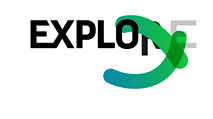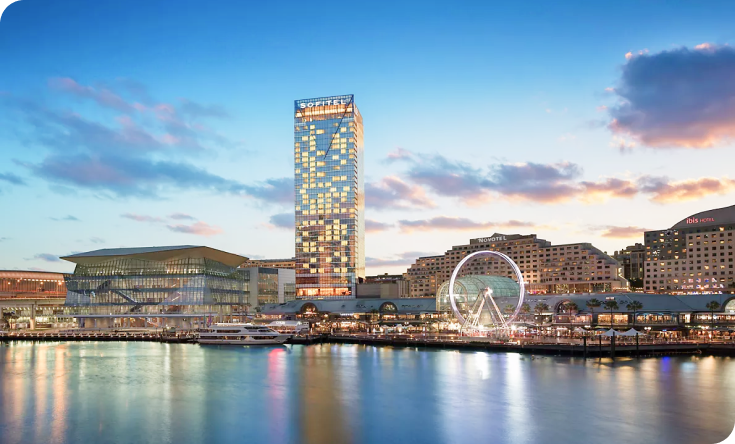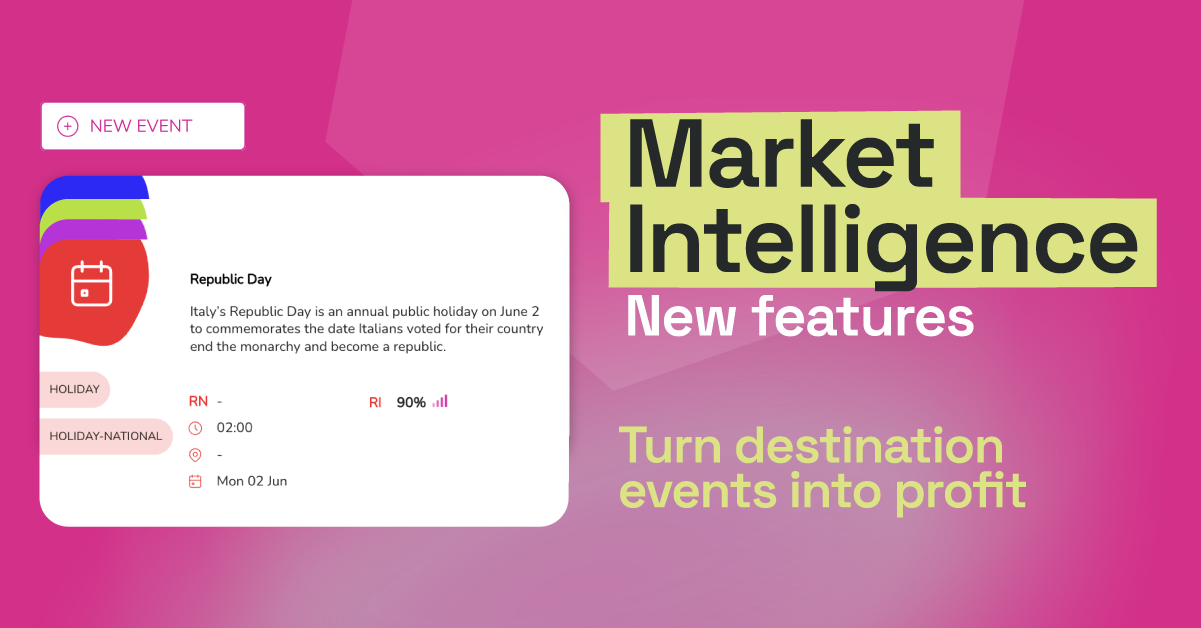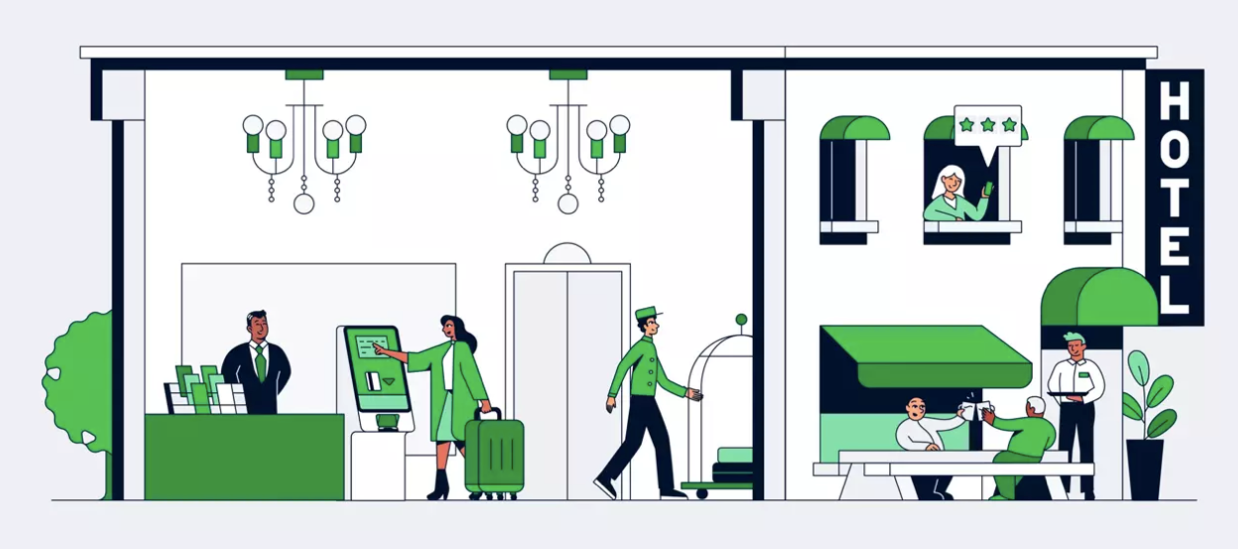

Your hotel CRM isn’t only the hub for your guest-facing operations. It can also supercharge your hotel’s digital marketing by leveraging real-time guest data to shape your strategy. However, hotels cannot rely on their CRM’s guest profiles alone – they need to utilize that data to enhance and personalize their digital marketing campaigns.
With over 90%* of hotel searches conducted on Google, hotels need a powerful CRM solution that seamlessly integrates with a digital marketing platform to maximize profitability. Benefits of this integration include increasing direct bookings and visibility on metasearch, paid search, and all Google surfaces, leveraging look-a-like audiences, and utilizing competitive pricing that resonates with a hotel’s target audience.
A CRM-augmented marketing strategy offers three powerful advantages. First, you’ll earn more repeat bookings from your best guests. Second, you’ll optimize spend across channels by putting your ads in front of the highest intent audiences. Finally, you’ll remain top-of-mind among those that may be traveling soon.
Here’s how to eliminate the guesswork in your campaigns by embedding your CRM’s single source of truth into your digital marketing platform.
Organize your CRM
To start connecting with your guests and driving direct bookings, you need a well-organized CRM that creates clarity, not confusion. Your hotel CRM should contain rich guest profiles that are updated in real time and designed to accurately aggregate customer data. Without precise guest profiles at your fingertips, you won’t be able to properly segment audiences or create personalized campaigns. If your CRM is disorganized or full of bad data, it’s time to upgrade.
A successful CRM will have all of the following ingredients:
Consistency: The saying “garbage in, garbage out” is apt when it comes to CRM data management. Train your staff to enter data consistently so that it’s as precise as possible. That way, your marketing strategy won’t be hobbled at the outset by poor data hygiene.
Guest origin: Knowing where your guests are traveling from can help refine your marketing strategies. For example, if you know that there’s a fare sale going on from a specific origin to your destination, you could segment guests who live in that area with a “Fare alert, book now!” email.
Cross-property behavior: Total revenue management focuses not just on the room booking but, on each guest’s full spending potential. Make sure your CRM accurately tracks how each guest spends across your property (or your entire brand if you have multiple locations). This is crucial information for personalizing communications and segmenting your most valuable guests.
Well-defined tags: Tags drive segmentation. Avoid a free-for-all and strategically define a list of tags that align with how you want to segment your guests for marketing purposes.
Code redemptions: For better tracking on which campaigns convert best, use custom codes and UTM parameters.
Segment your data
Segmentation is the secret sauce for digital marketing. The better you are at refining your audiences, the more you can optimize the tone, creative and placement of your digital marketing campaigns to target specific guests, including compelling offers that speak directly to each audience. The higher the relevance, the more likely the guest is to engage with the campaign and book a stay.
Personalize your digital marketing communications based on four criteria:
- Relevancy: Is this message relevant to this guest segment? Does it resonate with their expectations, their mindset, and their psychographics?
- Context: Is the message sent on the right channel? Does it provide both the context the guest expects — and is it consumed in the correct context?
- Tone: Does the message resonate? Is the tone both appropriate for the audience and the context in which the audience will consume it? Does it match what the segment expects from your brand?
- Time: Once the message is relevant, with the correct context and appropriate tone, it’s also important to ensure the timing is right. Does the message align with what the guest expects to receive from your brand at that particular moment?
While every property is different, here are some key segments to target:
Very best guests - These are your most profitable guests. They may not necessarily stay the most nights, but they are less price-sensitive and likely to spend more on property. The goal for this important segment is twofold: get these guests to return as often as possible and find more guests like them (we’ll get to look-a-like audiences further down).
Frequent guests - This is one of your main revenue-driving segments. Frequent guests give you the foundation for profitable operations via repeat stays and ancillary spend. While these guests may be a mix of premium and price-sensitive, the objective is to get them to return (even) more often.
Past guests - This is a fairly broad audience that does best when segmented further. Even so, these guests have already experienced your hotel and are thus a bit easier to sell to. You’ll want to find ways to entice a return visit by creating personalized offers in your digital marketing campaigns.
Locals - Even in periods of economic uncertainty, this group remains high-potential. There’s an increased appetite for staycations and experiences within driving distance for couples, solo travelers, and families. Target these guests via a dedicated segment so you can experiment with a variety of marketing campaigns.
Business travelers – From individuals traveling for business to group travel for on-property or nearby events, this vital segment has specific needs that require targeted campaigns with the selling points specific to this market, such as access to free/high-speed Wi-Fi, your location (especially if you are in business district and/or near major convention centers), an on-site business center, co-working space, and other business-friendly perks.
Of course, if your CRM is set up correctly and integrated with your digital marketing platform, you’ll be able create multi-channel campaigns for segmented audiences based on specific tags, as well as demographics, such as a guest’s home city, region, or country.
Leverage look-a-like audiences
Once you’ve set up your CRM with marketing automations to pull past guests into your integrated digital marketing platform, you can use your first-party data to create look-a-like audiences. These are groups of potential guests that have similar characteristics to your best guests, and therefore the most likely to book, based on their demographics, psychographics, and other factors.
A corollary benefit of using look-a-like audiences is the potential to identify a new marketing segment that’s similar, but not identical to, your most frequent guests. You’ve now just expanded your reach and created a new bucket of potential guests to target with your other digital marketing initiatives.
Once you’ve mastered look-a-likes, refine the messaging for these new audiences via methodical A/B testing, with different versions of creative, copy, and offers to see which combinations of image, headline, description, placement, and call-to-action perform best. By matching messaging to segment, you’ll optimize your marketing spend and reduce waste.
Develop dynamic campaigns
The beauty of augmenting your digital marketing platform with CRM data is that you can develop dynamic campaigns that adjust based on various parameters. These campaigns can create personalized offers, resulting in a better guest experience that drives conversions through relevant messaging and perks.
Your CRM’s guest data can supercharge three core dynamic campaigns:
Upsell campaigns: Offer guests a targeted upsell based on their declared preferences and past behavior. If you know a particular guest often books a spa treatment during their stay, don’t offer them a discount on tee times, keep your communications relevant with a spa package. Additionally, be sure to leverage what you know about your guests to dynamically adjust tone, timing, and messaging to promote the ideal upsells and ancillaries at the right time and on the best channel.
Social media: In addition to upsells, use dynamic content to speak to both past and potential guests on your social media channels. Consider adding a Facebook product catalog, which is a powerful dynamic demand generator. These catalogs allow you to build social media marketing campaigns that dynamically insert copy, images, and prices based on each user’s demographics, psychographics, and past behavior, such as retargeting website visitors with the exact contents of their abandoned carts. The catalog can be uploaded in various languages and used on Facebook’s websites, which significantly expands its reach and efficacy.
Retargeting: Abandoned carts aren’t always a sign that the guest has given up. Perhaps they got distracted or are still considering that stay. Insofar as you can within your local laws and platform rules’ parameters, find ways to automate dynamic display banner campaigns that re-engage potential lost guests. These could be paired with hyper-targeted offers that entice them to book via an automated email.
Always keep in mind that campaigns should match your brand voice. For a cheeky, trendy property, a subject line could be: “Was it something we said?” - and then include a special offer to close the deal: “Enjoy a welcome cocktail on us if you book within the next 24 hours.” Add in a timer as a finishing touch, and now you’ve got a sense of urgency and dynamic targeting - all automated!
Remember Apple’s privacy-focused iOS 14 has changed many of the dynamic retargeting and user tracking options. Additionally, with the European Digital Markets Act and Google phasing out third-party cookies, leveraging the most sophisticated multi-channel data-driven marketing tools is paramount. While these changes are undoubtedly impactful, they emphasize the urgency of focusing on first-party data for your hotel’s marketing.
Capture more non-room revenue
Driving overall revenue requires a focus on non-room revenue in addition to booking rooms. It’s no longer enough to assume that guests will naturally spend money while on property. Every time a guest opens their devices while traveling, they’re inundated with options for dining, activities, and more - both organic and paid. That’s why it’s important to get your own digital marketing messaging in front of your guests to remain competitive.
Your CRM can help you earn more non-room revenue by identifying guests with strong on-property spending patterns, allowing you to create personalized campaigns and other communications. If your CRM has a Meta integration, you can seamlessly push custom audience segments into Facebook's advertising platform, targeting guests with relevant information about your on-site dining and amenities. You can also target your local marketing by using your CRM to identify and create targeted campaigns for people who have previously dined at your restaurant or enjoyed your spa but did not book a room.
Analyze your CRM data
When properly implemented (and consistently updated), your CRM is a trove of insights. You’ll be able to learn which marketing campaigns had the best results - especially in terms of the total lifetime value of guests. By identifying the pathways that result in your most lucrative guests, you can simply replicate those touch points to find more valuable guests.
The journey from lead to guest to loyal guest won’t be a singular one. Dive into your CRM guest profiles to define the most profitable pathways, and then leverage your digital marketing platform to signpost those paths for more guests. Combined with tags on your website (such as Floodlight Tags), you can really dial into replicating the journeys of your best guests.
Unleash the AI
When optimizing your campaigns across multiple channels and phases of the guest journey, the most successful marketing is relevant and contextual. When your CRM leverages data from a unified multi-channel digital marketing platform, you can deliver relevant, personalized messages based on each channel’s context. This “right message, right time, right channel” approach means that you spend less and get better results.
Relevant offers, delivered at the right time on the ideal channel, perform far better than mass marketing messaging without any context. That said, personalization at scale is impossible to accomplish manually. Utilizing a digital marketing platform with AI-driven insights targets potential travelers with tailored ads, maximizing engagement and conversions efficiently. This AI-powered tech solution enables marketers to adapt swiftly to evolving trends and consumer behaviors, ensuring a competitive edge in the highly dynamic travel industry.
AI liberates hotel marketers to be bolder, experiment more often, and amplify what works best, all without handling every last detail manually.
Bringing it all together
The power of combining your CRM and digital marketing platform cannot be overemphasized. As the business world shifts towards first-party data, your guest data is pivotal, and having the right digital marketing platform in place is how to transform that data into successful and engaging campaigns.
Put your CRM’s rich guest profiles at the center of your marketing efforts and experiment with different combinations of segments, copy, creative, offers, messages, channels, and ad formats. Then automate what works. Do this enough times, and you’ll have the marketing momentum that drives conversions and ultimately keeps your hotel full of the most profitable guests!







